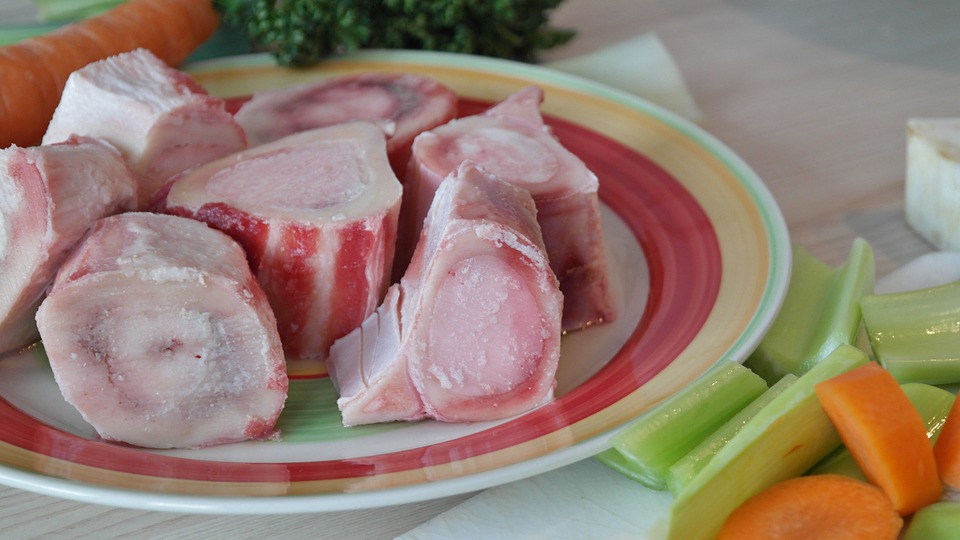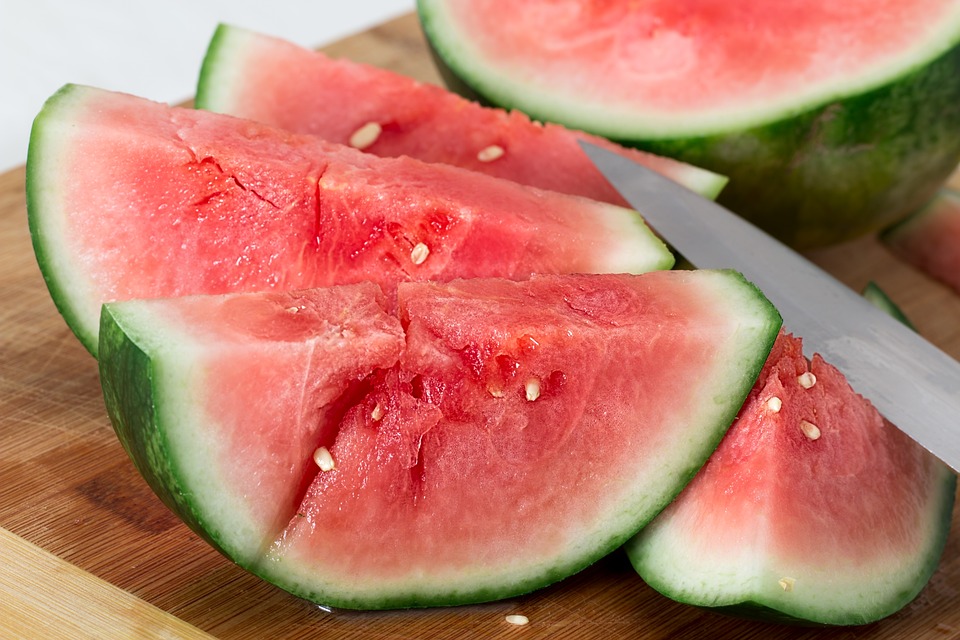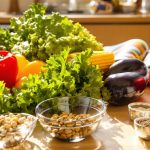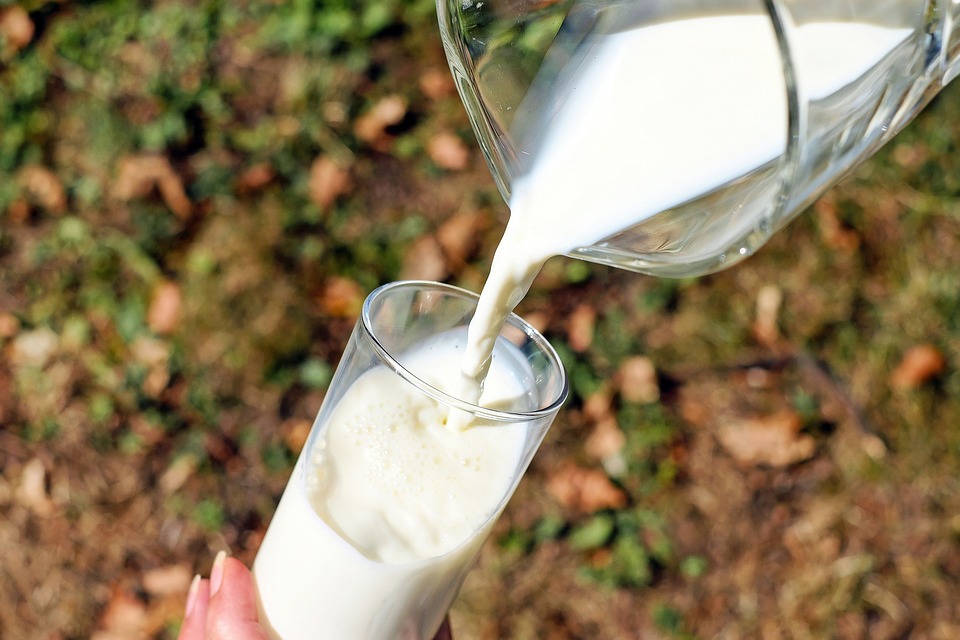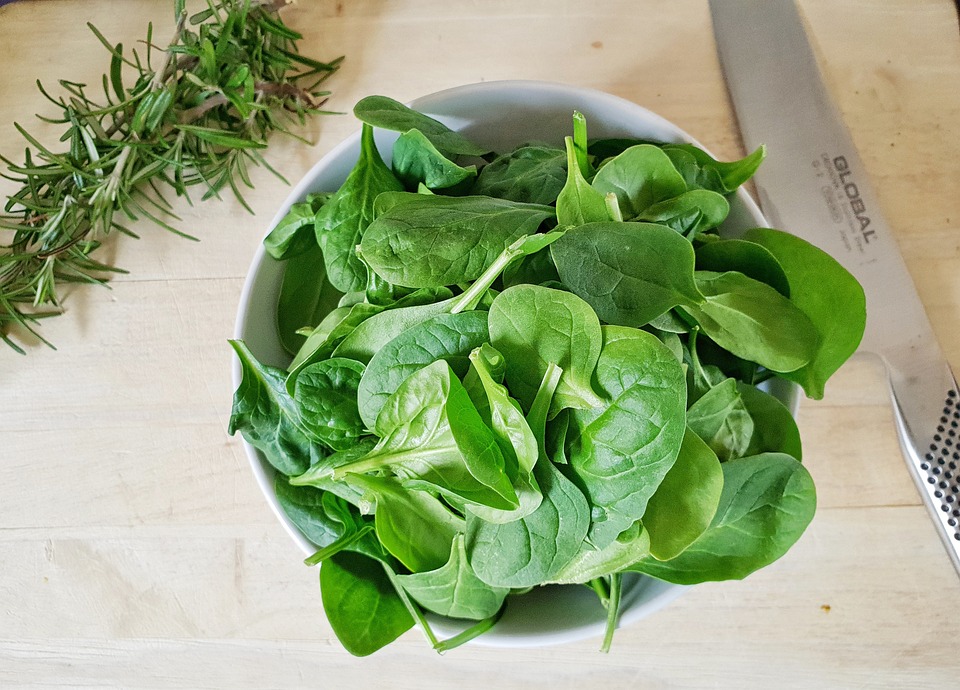
Popeye brought spinach to the attention of countless people, but the leafy vegetable has truly surpassed expectations.
This food contains a lot of vitamin K, which is necessary for blood clotting, and is a fat-soluble vitamin. The National Institutes of Health (NIH) states that, similarly to vitamin D and calcium, it also facilitates healthy growth of bones.
How Much Vitamin K Do You Need?
Individuals who are female by birth require 90 micrograms of vitamin K per day, while those classified as male need 120 micrograms a day, according to the National Institutes of Health.
The majority of individuals in America consume sufficient vitamin K from their meals since our bodies are able to produce some of it.
Nevertheless, specific segments of the population may have difficulty obtaining the necessary amount of nutrients such as infants who are not given a vitamin K injection soon after birth, individuals struggling with certain long-term disorders that reduce nutrient absorption (such as celiac illness), as well as those who have undergone weight loss surgical procedures, according to the NIH.
Learn more about what nutrition has to offer with a look at items that are abundant in vitamin K. The U.S. Food and Drug Administration (FDA) uses 120 micrograms of vitamin K as the base for their Daily Value (DV) percentage calculations.
Warning
High doses of vitamin K could disrupt the effectiveness of warfarin, a medication taken to prevent blood clots. If you are on a blood-thinning medication, have a conversation with your physician about the best way to incorporate foods with a lot of Vitamin K into your meals.
1. Spinach
A single cup of cooked spinach gives a person an incredibly large dose of vitamin K, which is integral for blood clotting functions. This widely enjoyed vegetable is rich in vitamin A and iron that is derived from plants.
2. Collard Greens
Frequently cooked in the South, collard greens are related to both cabbage and broccoli. Frequently preparing them by adding oil or butter will help your body take in fat-soluble vitamin K at a higher rate – one cup provides 644 percent of it.
3. Kale
Kale is beneficial as an alternative to spinach due to its reduced content of oxalic acid. Wait, what?
The National Osteoporosis Foundation has reported that the oxalic acid content of spinach can impede calcium absorption. Kale provides plenty of nutrition, including 453% of the daily value of vitamin K per cup cooked, all without significant levels of oxalates. It’s still beneficial to consume spinach, however, it’s also nice to vary one’s diet every now and again.
4. Broccoli
Kids should really learn to eat their broccoli. Each 1-cup serving of this food offers 183% of the daily value for vitamin K to help foster bone growth, 112% of the DV for vitamin C, plus a considerable amount of dietary fiber.
Experiment with roasting broccoli and flavoring it with salt and pepper for a fun quesadilla complement or, why not, as a tasty snack.?
5. Brussels Sprouts
Brussels sprouts provide the same nutrients as broccoli and are something that you either love or loathe. However, they remain regular at Thanksgiving meals.
Consuming a single cup of cooked food will provide 182% of the recommended daily intake of Vitamin K and 109% of the daily reference value for Vitamin C. Brussels sprouts are also a good source of potassium.
6. Cabbage
We cannot advocate for the cabbage soup diet to achieve weight loss because it does not contain an adequate amount of calories. Cabbage is beneficial for your health in many ways, offering nutrition such as fiber which can help with weight loss. A single cup of boiled cabbage has more than a third of the daily recommended amount of vitamin K.
Not a fan of cooked cabbage? One cup of fresh shredded cabbage will provide nearly half of the recommended daily value of vitamin K.
7. Pickles
Pickles are rich in vitamin K, accounting for 109 percent of the daily value per cup. But there are some caveats. These amounts are used for sweet pickles, of the type that might go on a sandwich such as bread and butter pickles.
That much sugar is contained in each portion! One cup of pickles is quite a lot. A single sweet pickle has about 22% of the recommended daily intake of vitamin K.
8. Asparagus
Grilled asparagus is a popular summertime meal, with a cooked cup containing 76% of the recommended daily vitamin K, as well as a good amount of both dietary fiber and antioxidant-filled vitamin E.
It is worth noting that asparagus does have a tendency to give off an odor when released through your urine, because of its asparagusic gas; however, the Cleveland Clinic advises that this is not an issue that presents any type of health risk and should not inhibit you from consuming this nutritious vegetable.
9. Turnip Greens
Turnip greens contain beneficial levels of vitamin K, potassium, copper, vitamin E, and calcium. People don’t just utilize the turnip root in the kitchen, the greens are often discarded and thrown away. Edible turnip greens offer positive health effects and are full of nutrients. Turnip greens are an excellent source of nutrients, containing relatively few calories yet providing many vitamins, minerals, and phytonutrients which are beneficial for overall health. It has been revealed that a single helping of turnip greens contains 33 micrograms of vitamin C, 318 micrograms of vitamin A, 105 micrograms of folate, and 138 micrograms of vitamin K. Turnip greens are effective in combating anemia since they are high in iron. Vitamin C can naturally be found in abundance in these foods and assists the body in the absorption of iron. They act as a guard against cancer since they possess sulforaphane, a potent substance that has been reported to possess anti-cancerous qualities. Additionally, the chlorophyll in turnip greens has the ability to counter the cancer-causing effects of barbecued or overcooked food. Fiber and water make for a strong combination that works to stop constipation from occurring. Fiber aids in relieving the hardness of stools, and water aids in facilitating the process of the colon moving stools along. Turnip greens offer abundant amounts of Vitamin K and calcium, two key components for maintaining the strength of the bones. Research has associated illnesses involving the bones such as osteoporosis with low consumption of vitamin K and calcium. These foods contain plentiful quantities of vitamin A, phosphorus, and magnesium, all of which assist with maintaining bone health. Turnip greens are a fine food to put in a nutritious diet as they are packed with nutrients but are low in calories. In order to gain the health advantages that turnip greens can provide, try adding them to your go-to meals and other recipes you find appealing.
10. Pomegranate Juice
Pomegranates, and in particular pomegranate juice, have become extremely popular in recent years with those concerned about their health, as it is overflowing with nutrients and can help in lowering the risk of illness. Further, it holds many plant substances that can’t be acquired from other sources. Pomegranate juice is an amazing source of numerous vitamins and minerals and is simple to access via drinking the juice. This food provides vitamins K, C, folate, copper, and potassium. This food is abundant in fiber for your diet, along with antioxidant and anti-inflammatory properties. This juice helps to reduce unwanted inflammation. Decreasing the possibility of developing heart disease and keeping the heart in optimum condition is achievable with this. Ingesting regularly can furthermore aid in lowering unwelcome fungal and bacterial infections because of its spectacular anti-bacterial properties. Ultimately, drinking pomegranate juice can help with arthritis and joint discomfort; because of its anti-inflammatory qualities, it can decrease swelling and make movement in the joints a lot easier. The daily recommended amount of vitamin K can be found in an average of 21.5 percent in pomegranate juice.
11. Okra
Okra goes by various aliases, such as “lady’s finger” or “gumbo”. A vegetable traditional in Southern cooking, it typically contains 17.4% of the vitamin K found in the average diet. A lot of individuals do not appreciate okra due to its slimy and fibrous texture. You have the option of boiling or frying the food item as an entirety if you want to lower its tendency to become sticky. Okra is low in calories and rich in nutrients. It is beneficial for health due to its antioxidant qualities. Expectant mothers ought to include this vegetable in their dietary intake. It shields against anemia, and can help with coughs and sore throats. This substance has insulin-like traits which assist in controlling blood sugar levels, thereby making it useful for treating diabetes. Okra has nutrients that are beneficial to male physiology, resulting in increased blood flow to the genital region which produces an erection. It lowers cholesterol and helps keep the digestive process in balance. Okra is praised for its abundance of vitamin K and folate, which help to reduce the risk of bone loss and enhance bone density.
12. Green Beans
A traditional Thanksgiving green bean casserole may be high in calories, but the fat present is a key factor in helping our bodies to absorb vital vitamin K. By consuming 1 cup of cooked green beans, you’ll obtain half of the Daily Value (DV) of vitamin K.
13. Plantains
If you are not aware of what a plantain is, you might have mistakenly assumed it to be a huge banana when you tasted it. Though related to bananas, plantains are distinctly different and should not be mistaken for them. They’re a carbohydrate-rich fruit that’s often enjoyed fried.
Eating one cup of fried plantains contributes 47 percent of the necessary daily value of vitamin K. For your information, bananas possess a minimal amount of vitamin K with just one percent of the daily value in every cup.
14. Avocados
Your preferred high-end breakfast topping is still at the top of the list for healthy foods. Avocado contains a generous amount of beneficial fat and is a good source of vitamin K with 1 cup of mashed avocado providing 40% of the recommended daily value. Perfect for guacamole, which is a fun and tasty way to get your vitamins! A single avocado provides 24 percent of the DV.
15. Blueberries
Is there anything the blueberry can’t do? Antioxidants in blueberries are renowned for their part in aiding brain function, and this has been validated by Ochsner Health.
One cup of fruit provides 24% of the daily value (DV) of Vitamin K and 13% of the DV for dietary fiber, making it a great source of these nutrients.
16. Grapes
Grapes have not only a significant amount of copper, but are additionally full of Vitamin K. Copper, a vital element in energy production, and Vitamin K, necessary for maintaining bone health and enabling blood clotting, are both essential elements. Grapes contain plentiful supplies of vitamins B6 and Thiamine.
17. Olive Oil
Many people opt for olive oil in the kitchen or for salad dressing due to its reputation as a beneficial fat. Many may not know, but olive oil is not only a wholesome fat source but also contains a significant amount of vitamins. A tablespoon of olive oil provides approximately 8 mcg of Vitamin K. This food item has Vitamin E, making it a contributor to healthy fat.
18. Pumpkin
Pumpkins can be found in many meals beyond Thanksgiving and Halloween, as they are full of nutrition and can be used to make delicious savory and sweet recipes. It has a minimum of 37% of vitamin K. Preparing pumpkin leaves and boiling them without the addition of salt provides the greatest amount of vitamin K. However, even the pulp and seeds of this fruit are great for health. It is low in calories and has saturated fat. In addition to potassium, magnesium, iron, and other dietary fibers, it also boasts vitamins A, C, E and B6. Losing weight and improving the health of your heart and eyes can be aided by this. It helps maintain healthy blood pressure levels and gives a youthful appearance to the skin. This foodstuff is high in vitamin K which aids in bolstering the skeleton and stopping osteoporosis. Pumpkins contain a wealth of beta-carotene, which can diminish the prospect of certain tumors, such as lung and breast cancer.
19. Cashews
Eating cashews provides advantageous nutrition and well-being advantages for individuals. A 100-gram portion of cashews has about 34.1 mcg of vitamin K. It’s obvious that cashews are a great way to get vitamin K and can be a part of anyone’s diet that is looking to increase vitamin K intake. It is crucial to have vitamin K in cashew nuts for proper bone well-being. They also have benefits for maintaining healthy teeth and strong gums. Cashews possess little fats compared to other nuts, making them a beneficial option for promoting the good health of one’s heart. Magnesium in cashew nuts helps to lower blood pressure. It makes good use of iron and gets rid of free radicals, leading to health issues. Cashews are beneficial for fighting against cancerous cells, especially those connected to colon cancer. It’s due to its content of copper and some specific flavonols. They can sift out the ultraviolet radiation from the sun in order to avoid muscular deterioration. Daily consumption of cashews lowers the possibility of forming a gallstone by 25%.
20. Carrots
Carrots contain nutritional benefits from dietary fiber, starch, Vitamin A in the form of beta carotene, Vitamin C, K, and B8 along with potassium, copper, and manganese. A half-cup of carrots provides nine percent of the amount of vitamin K needed daily. Eating foods that are high in fiber and antioxidants can help improve blood circulation and promote heart health. Carrots are packed with Vitamin A, which safeguards the skin from UV rays and keeps it looking young and luminous. It also helps to avoid premature wrinkles and cracking. They include lutein and beta-carotene (an element of vitamin A), helping to keep sight sharp and prevent various eye conditions. Research indicates that carrots may lower the chances of suffering from breast, lung, and colon cancer, in addition to aiding in the battle against cancerous cells. It also lowers blood pressure. Carrots are packed with potassium, which can help regulate blood pressure. Diabetics can benefit from eating these, as beta-carotene and potassium – both associated with a reduced chance of developing the condition – are present in abundance. Carrots contain minerals that can help ward off bacteria and guard against cavities, tooth degeneration, and other problems related to oral health. Carrot consumption is advantageous for cleansing the liver of toxic agents, as well as for reducing bile and fat present in the liver. Vitamin A found in carrots plays a vital role in this process. Carrots are incredibly important in eliminating toxins from the body. Carrots are packed with fiber, which aids in keeping the digestive system in good working order. Consequently, eating carrots decreases the possibility of constipation and safeguards the colon and stomach from different ailments.



